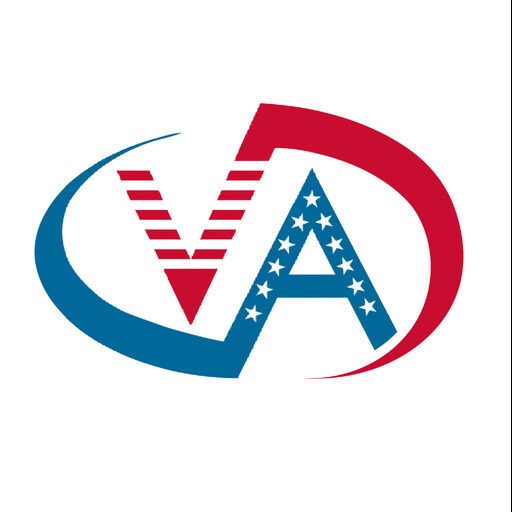What Are VA Loans for Self-Employed Borrowers?
A VA loan for self-employed borrowers is still a standard VA loan—backed by the U.S. Department of Veterans Affairs—but requires more documentation to prove consistent income from your business.
VA Loans were created to help Veterans, active-duty service members, and eligible surviving spouses become homeowners with fewer barriers. Instead of the Department of Veterans Affairs issuing the loan, the VA guarantees a portion of it.
For lenders, this guarantee reduces risk, making it easier for Veterans to qualify—yes, even if you run your own business.
If you’re a freelancer, contractor, or small business owner, you can still enjoy perks like:
- No Down Payment – Qualify for a home loan without needing to make an upfront down payment, making homeownership more accessible.
- No PMI – Avoid private mortgage insurance (PMI), which is typically required for loans with less than 20% down, saving you money on monthly payments.
- Competitive Interest Rates – Benefit from interest rates that are often lower than conventional loans, helping you secure affordable long-term financing.
All you need is to show your business income is stable and can support the monthly mortgage payments.
For official guidelines, see the VA Lenders Handbook (VA Pamphlet 26-7).
Eligibility Basics for Self-Employed Veterans
You must meet standard VA service requirements and show that your self-employed income is reliable enough for a mortgage.
The VA loan eligibility rules for self-employed borrowers are similar to anyone else using a VA loan. You’ll need:
Service History
- Veterans: At least 90 days of active service during wartime, or 181 days during peacetime.
- Active Duty: 90 continuous days.
- National Guard/Reserves: Six years of service, or at least 90 days active under Title 10 or Title 32 orders.
- Surviving Spouses: Must prove the spouse passed away in service or due to a service-related disability.
Certificate of Eligibility (COE)
The Certificate of Eligibility (COE) verifies your entitlement to a VA loan. Your lender can quickly obtain your COE through the VA’s electronic system, or you can apply online through the VA eBenefits portal, by mail, or through a VA regional office.
Credit Score
Most VA lenders prefer a minimum credit score of 620, though some may accept lower scores with strong financials. A higher score (640+) can improve loan terms and approval chances.
Sufficient Income and Debt-to-Income (DTI) Ratio
Lenders assess income stability and DTI ratio (typically ≤ 41%) to ensure you can afford the mortgage. Self-employed Veterans must provide extra documentation, such as two years of tax returns, a profit and loss statement (P&L), and bank statements, to prove reliable income.
Use our DTI calculator to see where you stand
Income Documentation Requirements
Two years of personal and business tax returns, a year-to-date profit and loss statement (P&L), and possibly a business license or bank statements.
When you’re self-employed, lenders look more closely at your finances. Common documents include:
- Two Years of Tax Returns – Personal (Form 1040) and any business returns (e.g., Form 1120 for corporations or Form 1065 for partnerships). Must be signed and complete.
- Year-to-Date Profit and Loss (P&L) Statement – Shows how your business is performing since your last filed tax return.
- Business License (if applicable) – Proves your operation is recognized in your state or locality.
- Bank Statements – Usually two months to show consistent cash flow (optional but helpful).
What if I’m newly self-employed?
If you’ve been in business for less than two years but have at least 12 months of experience plus related work history, you may still qualify. For example, if you were a mechanic in the military and then started your own auto repair shop, the lender sees a logical career path.
How the VA Calculates Self-Employed Income
The VA typically averages your net income over two years, adjusting for non-cash deductions and one-time events.
To make sure your income is steady, the VA (through your lender) will:
- Review Two Years of Tax Returns – The starting point for calculating your annual net income.
- Add Back Certain Deductions – Non-cash expenses like depreciation can be added back to increase your qualifying income.
- Exclude Large, One-Off Gains – Big, unusual payouts (e.g., selling business equipment) generally aren’t counted as regular income.
- Check Income Trends – A steady or rising income trend is ideal; a sudden drop raises questions.
Example:
- In 2023, your net business income was $50,000.
- In 2026, it grew to $60,000.
- Averaged income: $55,000 per year ($4,583/month).
If your monthly debt obligations keep your DTI at or below 41%, you’re likely in good shape.
VA Bonus Entitlement and Self-Employment
VA bonus entitlement applies to loan amounts above $144,000, helping you borrow more (up to county limits) with zero down—if your income supports it.
- Bonus Entitlement – Allows the VA to guarantee a bigger portion of your loan if it’s above $144,000.
- Loan Limits for 2026 – Typically $766,550 in most areas, and can go higher in expensive counties.
For self-employed borrowers, the main factor is showing enough income to cover a larger mortgage. Even if you’ve used some entitlement before, you can still use what remains for another property. You may just need a down payment if the loan size exceeds your available entitlement.
Challenges Self-Employed Borrowers Face
Irregular earnings, heavy tax write-offs, and short business history can complicate the VA loan process.
- Income Fluctuations – Seasonal or inconsistent earnings make lenders cautious.
- Large Deductions – Claiming many business expenses lowers your taxable income, which can reduce your qualifying amount.
- Short Business History – Less than two years in operation requires extra evidence of stability.
- Extra Paperwork – You’ll submit more documents than a typical W-2 employee.
Real-World Example:
A Veteran freelance graphic designer deducted so many home-office expenses that her qualifying income fell below the lender’s threshold. She provided an updated P&L showing rising revenue, which helped prove her business was healthy.
Tips to Qualify as a Self-Employed Borrower
File taxes early, consider minimizing deductions, keep accurate P&L statements, and work with a lender experienced in VA Loans for business owners.
- File Taxes Early – Updated returns streamline the approval process.
- Review Your Deductions – Write-offs are good for tax savings but can lower your reportable income.
- Maintain Solid Financial Records – A well-prepared P&L reassures lenders your business is profitable.
- Choose a VA-Savvy Lender – An experienced lender can interpret self-employment income more flexibly.
- Strengthen Your Credit – Aim for a score of 640+ to help offset any concerns about variable income.
Real-World Example:
A self-employed landscaper decided to limit his business deductions for one tax year to show higher net income. This approach boosted his qualifying amount by $10,000.
Frequently Asked Questions
Can I get a VA loan if I’m self-employed?
Yes, you need two years of tax returns, a stable income history, and a credit score generally above 620. If you've been in business for less than two years, you may still qualify if you have relevant work experience.
How does the VA verify self-employed income?
The VA reviews two years of tax returns, a current profit and loss (P&L) statement, and possibly bank statements. They average net income and may add back non-cash expenses like depreciation.
What’s the minimum income for a VA loan?
There is no set minimum income requirement, but your debt-to-income (DTI) ratio should generally be under 41%. Lenders evaluate this on a case-by-case basis.
Does VA bonus entitlement help self-employed borrowers?
Yes, it allows for a larger loan amount—up to $766,550 in many counties for 2026—if your income qualifies.
How long do I need to be self-employed for a VA loan?
Typically, two years, but one year plus related industry experience may be enough.
Can I use a VA loan for my business property?
No, VA loans are strictly for primary residences.
What if my self-employed income dropped recently?
You’ll need to explain the reason. A recent profit increase or seasonal fluctuations may help reassure lenders.
Summary and Key Takeaways
VA loans are a top choice for self-employed Veterans in 2026, offering zero down payment, no PMI, and competitive interest rates.
To qualify, you must prove stable income with two years of tax returns, a profit and loss statement, and possibly bank statements. A credit score of 620+ is preferred, and your DTI ratio should be under 41%.
If you have less than two years of self-employment, related industry experience may help. VA bonus entitlement allows for higher loan amounts. Working with a VA-experienced lender ensures a smoother process and better approval odds.

The VA Loan Network Editorial Team is comprised of dedicated mortgage specialists and financial writers committed to providing veterans and service members with accurate, up-to-date information on VA loan benefits, eligibility, and the home-buying process.








